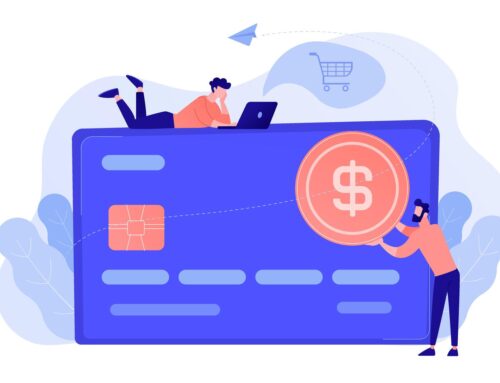Many credit cards and other forms of financing may offer no interest deal for the first six months, one year or eighteen months as a teaser rate to get you to sign up. It can be tempting to think this may solve your problems if you want to purchase a large item like a TV or a computer you otherwise could not afford or if you want to do a balance transfer from a high interest rate credit card on which you are carrying a balance to the new credit card during the initial interest-free period. Therefore, many people may think that a zero-interest rate for an introductory period will allow them time to pay off that high interest rate credit card debt they have racked up on another credit card or else to buy and then pay off that TV, computer or other expensive item you may have wanted to buy for some time, but were waiting until you had an option that would allow you pay it off over time.
However, what these interest-free offers often fail to disclose is that all that interest that you are putting off for that first year or whatever the applicable introductory period is will eventually come due. They also fail to disclose that failing to make a required minimum payment on a credit card or other form of financing that comes with such an introductory offer of no interest for a certain period can cause you to lose the benefit of the interest-free period entirely, causing interest to begin accruing immediately even if that introductory period is not over. These types of interest-free teaser rates on credit cards ultimately are set up to make money for the credit card issuer, not the person that signs up for the credit card or financing.
The Introductory No Interest Deal Does Not Last Forever
Say you buy $1,000 of personal items on a credit card that offers you a no interest deal for the first year. Even if you end up making the required minimum payments during the first year or whatever that introductory period of no interest is, you may still end up owing a large amount once that interest free period is over. For example, if you were able to pay down $300 of the $1,000 you spent over the one year interest free period, then interest would immediately start accruing interest at whatever (likely high) interest rate that the card reverts to after this introductory interest-free period. Assuming you don’t have the funds to immediately pay that $700 off in full, then the amount of what you owe will quickly snowball and increase month after month until you owe thousands of dollars.
You May Pay a Balance Transfer Fee If You Transfer Over Balances from Other Credit Card
If you are using the new credit card to transfer over a balance from an existing credit card with a high interest rate, then you may find that doing so will be costly. For example, the new “interest-free” card may still charge you a fee for transferring over a balance from an existing credit card. If, for example, you are carrying $10,000 on another card and transfer that balance to the new card and there is a 3 percent balance transfer fee, then now you would owe $10,300 on the new card.
You Can Lose the Introductory Period
If you fail to make a minimum payment during the introductory period, you also may find that you lost the benefit of the interest-free period entirely. Despite the fact that any purchases you make or financing you take out is not earning any interest, you are still required to make minimum payments on a card that offers interest-free financing for an introductory period. The penalty for failing to make that minimum payment can be the loss of the remainder of the interest-free period. Therefore, if you missed a payment during the introductory period, then you might find that whatever balance you have is suddenly accruing interest because you missed a payment.
The Lender’s Motivation Is for You Not To Pay Off the Balance That You Transferred or the Purchases That You Made During the Introductory Period
The lender ends up profiting if you do not pay the balance off at the end of that year. This is why no interest deal like this are offered, because the credit card issuer is counting on the fact that, not only will you not pay off that balance, but you will spend more than you are able to pay off at the end of the introductory period. The credit card issuer only makes money if you do not pay off your balance by the end of that period, which is why deals like this exist in the first place.





Leave A Comment